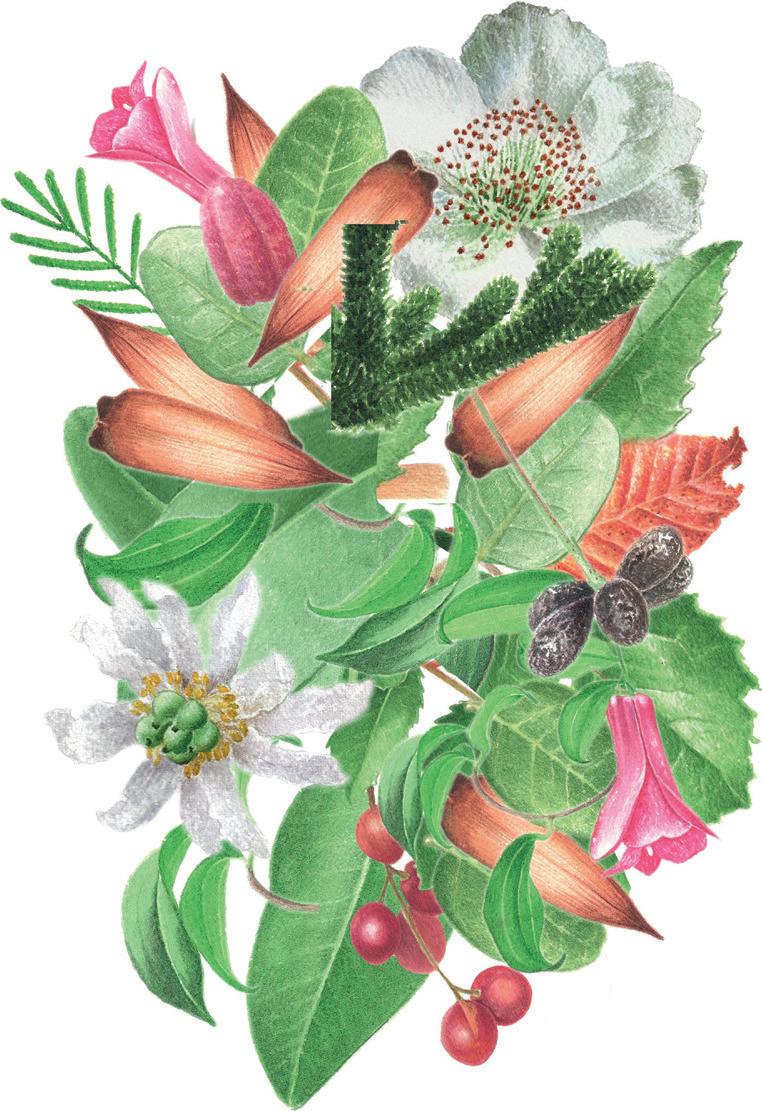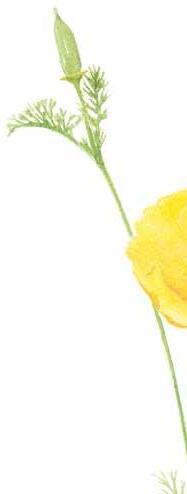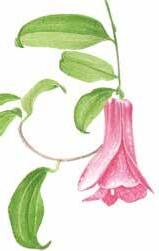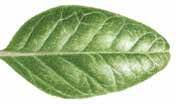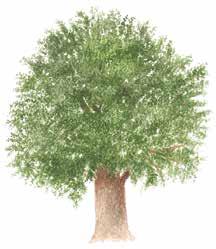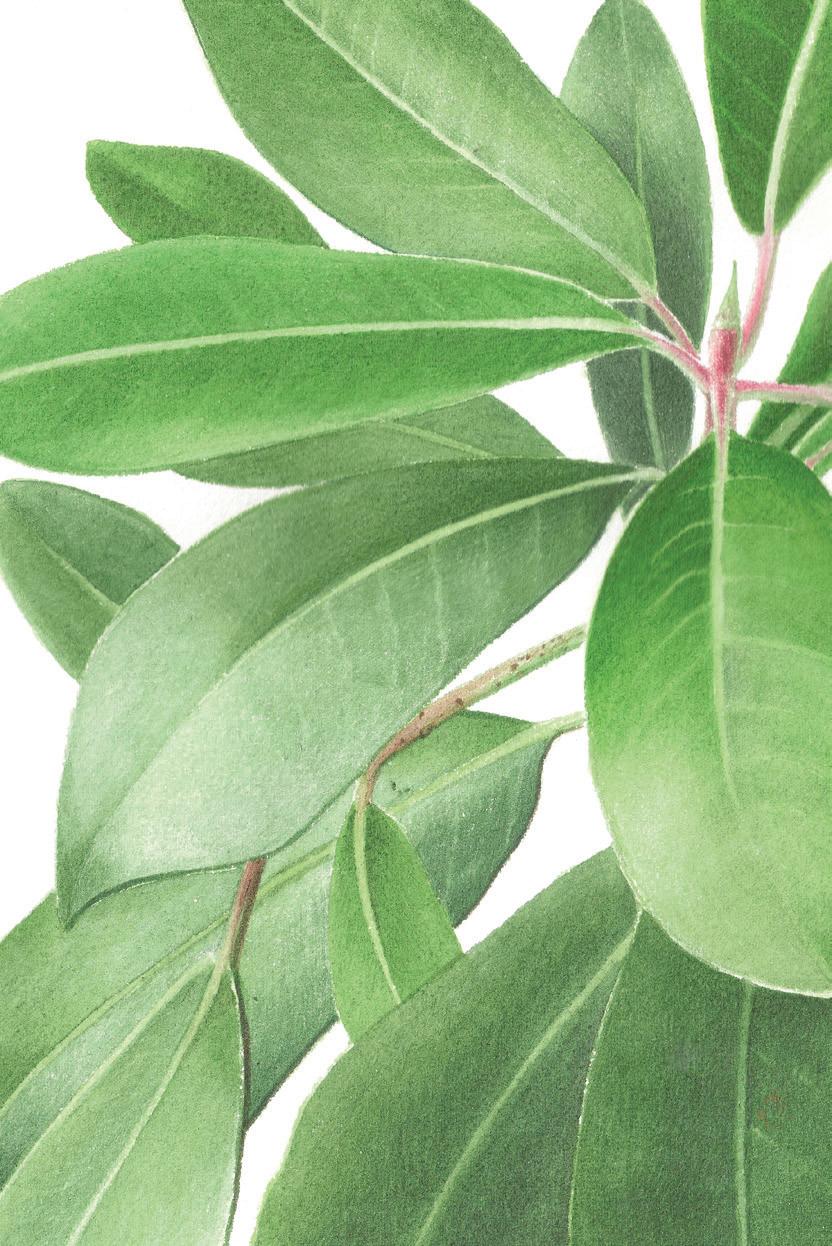20 poemas al árbol y un cactus de la costa
20 poems to trees and a cactus of the coast
© Fundación Pablo Neruda
© De esta edición / Of this publication: Liberalia Ediciones Ltda., 2014.
Traducción al inglés / Translation into English: Mónica Cumar
Edición de los poemas / Editing of poems: Mónica Cumar, Pedro Sánchez
Ilustraciones / Illustrations: Francisco Ramos
Diseño / Design: Florencia Labbé F.
Edición al cuidado de / Responsible for edition: Loreto González
1a edición, julio, 2014 / 1st edition: July, 2014, Santiago de Chile
ISBN: 978-956-8484-34-7
Registro de propiedad intelectual: 242.922
Liberalia Ediciones Ltda.
Avenida Italia 2016, Ñuñoa, Santiago, Chile
Tel. (562) 2343 8432 * Fax: (562) 2326 8805 liberalia@liberalia.cl * www.liberalia.cl
La presente obra cuenta con el patrocinio de la Fundación Pablo Neruda. Fundación Pablo Neruda are sponsoring this work.
Ch861
N454v Neruda, Pablo, 1904-1973.
20 poemas al árbol y un cactus de la costa = 20 poems to trees and a cactus of the coast / Pablo Neruda ; Ilustraciones de Francisco Ramos. -- 1a. ed. –- Santiago, Chile : Liberalia Ediciones, 2014.
180 p. : il. col. ; 14 x 21 cm.
ISBN: 978-956-8484-34-7
1.Poesías chilenas. I. t. II. Ramos, Francisco, il.
Los nombres de árboles, plantas y flores al pie de las ilustraciones, están en castellano, mapudungun y latín. / The names of trees, plants and flowers at the bottom of illustrations are in Spanish, Mapudungun and Latin.
Los poemas incluidos en este libro se han tomado de las siguientes obras de Pablo Neruda / The poems included in this book have been taken from the following works by Pablo Neruda: Canto general, Confieso que he vivido, Crepusculario, Estravagario, Geografía infructuosa, Las uvas y el viento, Memorial de Isla Negra, Nuevas odas elementales, Odas elementales, Residencia en la tierra II y Tercer libro de las odas.
Y UN CACTUS DE LA COSTA
NOTA DE LA TRADUCTORA
Mientras trabajaba en la traducción de este libro, me encontré con una frase de Miguel Ángel, quien solo al final de su larga vida tuvo una cercanía con el mundo del bosque. Recién llegado a Roma, después de haber pasado más de un mes en Spoleto, entre robles y olivos, en medio del esplendor del otoño de 1556, escribe en forma absoluta: «Allí he dejado más de la mitad de mí mismo, porque la verdad es que la paz solo se encuentra en los bosques».
De eso ha pasado mucho tiempo, y en nuestro Pablo Neruda encontramos esa misma pasión por el bosque, el mismo exaltar su silencio y sus leves sonidos, esa añoranza por los árboles. (Están en latitudes similares.) Miguel Ángel también fue poeta y también les cantó al amor y a la naturaleza.
Neruda se interna en el bosque; se extasía ante ese mundo en que vida y muerte conviven delante de los ojos del visitante. En sus poemas nos muestra la magia de esa comunidad que forma el bosque: árboles, arañas, nidos, humus, hojas, pájaros. Nos cuenta de su entrada en el templo que es el bosque y nos lo pone al alcance de la mano. Comparte con nosotros su emoción, su absoluto asombro ante ese laboratorio de alquimia.
La vertiente brota allí, bajo los árboles, al amparo de su sombra. Los seres vegetales –desde el mayor de los árboles hasta el musgo diminuto– se cuidan, se alimentan, se protejen, los unos a los otros. Pero ese mundo silvestre y místico no hace estas cosas únicamente para sí mismo; también a nosotros nos cuida, alimenta y protege. El veneno que exhalamos al respirar, el mundo verde lo hace su alimento y nos lo devuelve hecho aire fresco, madera, hoja, flor, fruto. ¡Bosque, prodigio de cooperación, donde ninguno de sus seres compite con el otro! Muy por el contrario: convive con el entorno entero, en la armonía milagrosa de un organismo en el que nada falta, en el que nada sobra.
Así, el hombre antiguo convivía en intimidad con el bosque, del que tomaba su alimento, sus hierbas medicinales, la leña para cocinar y calentarse, los materiales para construir su casa. Allí encontraba a sus
dioses, invocaba a las fuerzas elementales, hacía sus sortilegios. Piedras, fuentes, árboles y zarzas, eran lugares de encuentro con la divinidad. El bosque era una síntesis de lo cotidiano y lo sublime.
Hoy nos hemos alejado de ese bosque, y esto nos hace olvidar que de él nos llegan, desde lejos, todas las maderas que conforman nuestros muebles y utensilios; el carbón que antes ardió, lentamente, en un horno del monte; las castañas que cayeron en sus erizos y rodaron por el suelo vegetal.
Neruda ve y retrata el bosque como un lugar sagrado, como ese mundo exclusivo y protegido que le pertenece, que es parte de su ser. «Desde entonces / mi amor fue maderero / y lo que toco se convierte en bosque», nos dice, con íntima emoción, en su poema «Primer viaje». Descubre el bosque en su temprana niñez y nos lo cuenta cada vez con matices diferentes. Miguel Ángel lo descubre, con dolor, cuando ya es un anciano, y no lo alcanza a disfrutar. A ambos los absorbió la ciudad, y siempre van a estar anhelando el bosque.
Miguel Ángel esculpió la piedra. La iba a buscar a las canteras, la escogía con cuidado y vigilaba, muy de cerca, el traslado a su taller. Pablo Neruda habla muchas veces de las piedras, y sus palabras las busca, con el mismo esmero y celo, en libros, enciclopedias, conversaciones, lecturas. Nos dice que brillan como piedras de colores, que las atrapa, las limpia, las pela, y al final, el poema brota como del cincel de un escultor: «... no importa / ser una piedra más, la piedra pura, / la piedra oscura que se lleva el río», dice al final de su poema «Oh tierra, espérame». A estos dos grandes hombres los separan sus biografías disímiles, la época en que vivieron, la geografía, sus oficios principales. Sin embargo, quedan asombrados, con reverencia, ante lo mismo: la magnificencia de una arboleda, sin cuya existencia no sería posible la nuestra.
Mónica Cumar Junio de 2014
TRANSLATOR’S NOTE
While working on the translation of this book, I came across a sentence by Michelangelo, who only at the end of his long life had a closeness with the world of the forest. Recently arrived in Rome, after spending over a month at Spoleto among oaks and olive trees, in the middle of the splendour of Autumn 1556, he wrote in an absolute manner: «I have left there more than half of myself, because the truth is that peace is only found in the forests.»
Much time has elapsed since then, and in our own Pablo Neruda we encounter the same passion for the forest, the same exaltation of its silence and gentle sounds, that grieving for the trees. (They live on similar latitudes.) Michelangelo was a poet, and he also sang to love and nature. Neruda goes into the woods; becomes enraptured in front of that world where life and death live together before the eyes of the visitor. In his poems he shows us the magic of this community the woods compose: trees, spiders, nests, humus, leaves, birds. He tells us of his entering the temple which is the forest and places it within our hands’ reach. He shares his emotion with us, his total awe in the face of this laboratory of alchemy.
The spring of water bursts forth there, under the trees, sheltered by their shade. The vegetation –from the tallest of trees to the tiny moss– care for, feed, protect, each other. However, this wild and mystic world not only does it for itself, but also cares for, feeds and protects us all. This green world makes the poison we exhale its food and gives it back to us as fresh air, wood, leave, flower, fruit. Forest, prodigy of co-operation, where not one of its beings competes with another! Much the opposite: it co-exists with its entire surroundings, in the miraculous harmony of a living organism in which nothing is in wont, in which nothing is in excess.
Thus, ancient man lived together in intimacy with the forest, from where he took his food, his medicinal herbs, his firewood to cook and warm himself, the materials to build his home. There he met his gods, called upon the forces of nature, made his magic spells. Stones, wells,
trees and brambles, were places of encounter with the divinity. The forest was a synthesis of every-day things and the sublime.
Nowadays we have moved away from that forest, and this makes us forget that from it, from afar, we receive all the timbers that make up our pieces of furniture and tools; the charcoal that was charred beforehand, slowly, in a kiln on the hill, the chestnuts that fell down, in their burs and rolled on the vegetation ground.
Neruda sees and portrays the woods as a sacred place, like that exclusive and protected world that belongs to him, that is a part of his very being. «Since then my love / was timber-like / and what I touch turns into a forest», he tells us, with an intimate emotion, in his poem «First Journey». He discovers the forest in his early childhood and tells us of it every time with a different nuance. Michelangelo discovers it with pain when he is already an elderly man, and when it is outside of his reach to enjoy it. They were both absorbed by the city life, and will always be yearning for the forest.
Michelangelo sculptured the stone. He went in search of it to the quarries, chose it carefully and watched with care and vigilance over its transfer to his workshop. Pablo Neruda speaks about the stones many times, and seeks his words with even care and zeal, in books, encyclopaedias, conversations, readings. He tells us they glitter like coloured stones, that he snares them, cleans them, peels them, and at the end, the poem arises as though from the chisel of a sculptor: «... it makes no difference / being one more stone, the pure stone, / the dark stone the river takes away», he says at the end of his poem «Oh Earth, Wait for me».
These two great men are separated by their dissimilar biographies, the time they lived in, geography, their main trades. Nevertheless, they surrender in awe, with reverence, before the same thing: the magnificence of a grove, without whose existence ours would not be possible.
Mónica
Cumar June 2014
EL BOSQUE CHILENO
THE CHILEAN WOODS
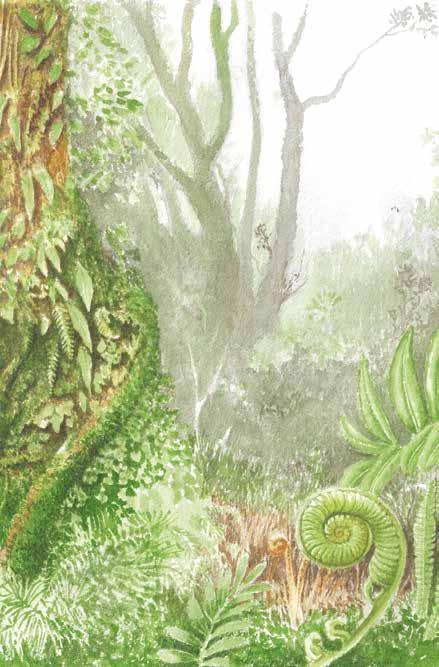

Under the volcanoes, along the snow drifts, among the large lakes, the fragrant, the silent, the entangled Chilean woods... Feet get sunk in the dead foliage, a brittle branch crackles, the huge raulí raises its curly height, in the cold forest a bird crosses, flutters, halts among the shadowy maze of branches. And then, from its hiding place it sounds like an oboe... It takes into my noses through my soul the wild aroma of laurel, the dark aroma of boldo ... The cypress of the Guaitecas obstructs my step... It’s a vertical world: a nation of birds, a crowd of leaves... I stumble against a stone, I scratch the uncovered cavity, an immense spider with a red head of hair stares at me with its fixed eyes, still, big as a crab... A golden carabus shoots its mephitic emanation, while its radiant rainbow disappears like a lightning... When passing by, I cross a grove of ferns much taller than myself: they let sixty tears drop on my face from their green cold eyes, and for a long while their fans keep trembling behind me... A rotten trunk - what a treasure!... Black and blue mushrooms have bestowed it with ears, red parasitic plants have lavished it with rubies, other lazy plants have lent it their beards, and
...Bajo los volcanes, junto a los ventisqueros, entre los grandes lagos, el fragante, el silencioso, el enmarañado bosque chileno... Se hunden los pies en el follaje muerto, crepitó una rama quebradiza, los gigantescos raulíes levantan su encrespada estatura, un pájaro de la selva fría cruza, aletea, se detiene entre los sombríos ramajes. Y luego desde su escondite suena como un oboe... Me entra por las narices hasta el alma el aroma salvaje del laurel, el aroma oscuro del boldo... El ciprés de las guaitecas intercepta mi paso... Es un mundo vertical: una nación de pájaros, una muchedumbre de hojas... Tropiezo en una piedra, escarbo la cavidad descubierta, una inmensa araña de cabellera roja me mira con ojos fijos, inmóvil, grande como un cangrejo... Un cárabo dorado me lanza su emanación mefítica, mientras desaparece como un relámpago su radiante arcoíris... Al pasar cruzo un bosque de helechos mucho más alto que mi persona: se me dejan caer en la cara sesenta lágrimas desde sus verdes ojos fríos, y detrás de mí quedan por mucho tiempo temblando sus abanicos... Un tronco podrido: qué tesoro!... Hongos negros y azules le han dado orejas, rojas plantas parásitas lo han colmado
from its rotten innards a snake breaks out, swiftly, like an emanation, as though the dead trunk’s soul were slipping away... At a distance, every tree is separated from its fellow kind... They rise over the carpet of the secret forest, and every single foliage, linear, crimped, clustered, lanceolate, has a distinct style, as though it was cut by a pair of scissors of endless movements... A ravine: down below the clear water slips away upon granite and jasper... A butterfly flies, pure as lemon, dancing between water and light... By my side, the infinite calceolarias greet me with their yellow little heads... Up above, like arterial drops of some magical forest, the red copihues (Lapageria rosea ) sway... The red copihue is the flower of blood, the white copihue is the flower of snow... In a shake of leaves, a fox’s speed ran through silence, and silence is the law of those foliages... Scarcely the distant cry of an indistinct beast... The piercing intersection of a hidden bird... The vegetation universe barely whispers till a storm brings the entire earthly music into action.
Those who do not know the Chilean woods, do not know this planet. From those lands, from that soil and that mud, from that stillness, I have come out to walk, to sing throughout the world.
de rubíes, otras plantas perezosas le han prestado sus barbas y brota, veloz, una culebra desde sus entrañas podridas, como una emanación, como que al tronco muerto se le escapara el alma... Más lejos cada árbol se separó de sus semejantes... Se yerguen sobre la alfombra de la selva secreta, y cada uno de los follajes, lineal, encrespado, ramoso, lanceolado, tiene un estilo diferente, como cortado por una tijera de movimientos infinitos... Una barranca: abajo el agua transparente se desliza sobre el granito y el jaspe... Vuela una mariposa pura como un limón, danzando entre el agua y la luz...
A mi lado me saludan con sus cabecitas amarillas las infinitas calceolarias... En la altura, como gotas arteriales de la selva mágica se cimbran los copihues rojos (Lapageria rosea )... El copihue rojo es la flor de la sangre, el copihue blanco es la flor de la nieve... En un temblor de hojas atravesó el silencio la velocidad de un zorro, pero el silencio es la ley de estos follajes... Apenas el grito lejano de un animal confuso... La intersección penetrante de un pájaro escondido... El universo vegetal susurra apenas hasta que una tempestad ponga en acción toda la música terrestre.
Quien no conoce el bosque chileno, no conoce este planeta. De aquellas tierras, de aquel barro, de aquel silencio, he salido yo a andar, a cantar por el mundo.
LA FRONTERA (EXTRACTO)
THE FRONTIER (EXCERPT)
Lingue / Lingue / Persea lingue
The first thing I ever saw were trees, ravines decked with flowers of wild beauty, moist territory, woods that catch fire and the winter behind the world, overflown. My childhood is wet shoes, torn out tree trunks fallen on the forest, devoured by vines and beetles, sweet days on the oats, and my father’s golden beard going out towards the stateliness of railroads.
[...]
My childhood travelled the stations amid the railroad lines, the recent stacked timbers, a house with no town, hardly protected by cattle and apple trees of unspeakable perfum I was a slim child whose pale shape became imbued with empty woods and warehouses.
Lo primero que vi fueron árboles, barrancas decoradas con flores de salvaje hermosura, húmedo territorio, bosques que se incendiaban y el invierno detrás del mundo, desbordado.
Mi infancia son zapatos mojados, troncos rotos caídos en la selva, devorados por lianas y escarabajos, dulces días sobre la avena, y la barba dorada de mi padre saliendo hacia la majestad de los ferrocarriles.
Mi infancia recorrió las estaciones: entre los rieles, los castillos de madera reciente, la casa sin ciudad, apenas protegida por reses y manzanos de perfume indecible fui yo, delgado niño cuya pálida forma se impregnaba de bosques vacíos y bodegas.
